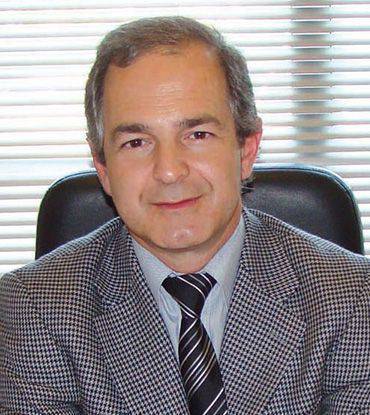Duration
1 Hour
Recovery
15 Days
Anesthesia
General
Results
Permanent
Hospital stay
24 - 36 Hours
Price
USD 5,900
Metabolic Surgery in Argentina
Diabetes is a chronic disease that affects a large number of patients and that in their evolution leads to complications that negatively impact health status.
Type 2 diabetes represents more than 90% of diabetes cases and, unlike insulin-dependent diabetes, is characterized by elevated insulin levels that are not effective. Medical treatments generally help maintain normal blood sugar levels, however, 1 in 5 patients can not achieve this goal. Obesity is a major risk factor for developing type 2 diabetes.
Metabolic Surgery reverses Obesity and Type 2 Diabetes
Surgery is the only effective method that can reverse obesity in more than 80% of patients. Clinical observations showed that are also effective in the resolution of type 2 diabetes. While any weight loss helps normalize type 2 diabetes, the most important finding is that some surgeries enables you to normalize blood sugar levels before they achieve a significant weight reduction (sometimes in the weeks following surgery), allowing that patients discontinue the medication ingested to control the disease. In other words, there are surgeries that allow reverse type 2 diabetes independently of weight loss.
These events led to the development of what is now called metabolic surgery, since the effects of surgery exceed the goal of reducing the weight of patients.
The experience gained with this type of intervention can affirm that the cure of diabetes is linked to overweight patients who underwent surgery . As with any surgery, the patient must understand that has a chronic disease and should incorporate healthy habits for life.
Metabolic surgery has two main features. The first is that, precisely, can solve diabetes. The second is that it solves the problem of fat metabolism (cholesterol and triglycerides). Depending on the type of surgery is chosen, some are more effective in reversing diabetes and others to reverse both problems, there arises that a surgeon in charge should provide the most appropriate surgery for each patient. On that basis, there are surgeries that are more effective than others to reverse these diseases.
Metabolic Surgery Results: Extended Life
The majority of type 2 diabetics who undergo metabolic surgery recover from diabetes a few days after the procedure. The reversal of type 2 diabetes can prevent long term complications of the disease and return the patient a life expectancy that resembles a normal person.
As previously mentioned, a person with diabetes has six times more likely to have a cardiovascular event, and twelve times more to develop a long-term kidney failure in relation to a normal person. This, taken together, gives a life expectancy of 10 to 12 years younger.
Reversing this condition has as its most important effect return life to patients in the future.
Post operative care after a Metabolic Surgery
The changes that surgery make, do not release the patient from making changes in eating habits since it is a chronic disease that will accompany them for life.
While it is necessary to monitor blood sugar levels after surgery, patients usually do not need more medication to control diabetes after the operation. In some advanced cases, they may continue with medication, but in much lower doses. It is important to follow medical guidelines, which are usually these:
- Meet at least six intakes throughout the day: breakfast, snack, lunch, dessert, tea and dinner.
- It is advisable an interval of no more than three hours and not less than two hours between each intake.
- Do not drink fluids while eating. They make the person feel full before you have eaten enough.
- When you start eating solid food, chew food and eat very slowly. It is important to wait a few minutes after swallowing before putting the next bite of food in the mouth.
- Avoid soft drinks and sodas, high-calorie supplements, foods high in fat, and foods with no nutritional value.
- Avoid alcohol.
Usually, patients return to normal activity within 2 weeks after the surgery. It is recommended that women of childbearing age to use effective forms of birth control in the first year after bariatric surgery.
Norman Jalil, M.D.
Professional Medical License: 19398
Specialty License: 6273

- Specialist in General and Endocrine Surgery.
- Specialist in Minimally Invasive and Bariatric Surgery, University Hospital Claude Huriez, Lille, France.
- Full Member of the American Association of Endoscopic Surgeons (ALACE)
Before and After Photos
In the following photo gallery you will find images of before and after metabolic surgery. Photographs of our former patients taken before and after 6, 12 or 18 months of surgery. If you have any questions, do not hesitate to consult our doctors and receive your free quote.
Price
How much does a metabolic surgery cost abroad? The reference price for this diabetes treatment in Argentina is USD 5,900 but this may vary according to the needs and requirements of each patient. Please fill in the form below to contact us and get your Free Quotation!
Our prices includes: post surgery consultations and controls; surgeon, anesthesiologist, nurses, assistances fees; surgery and recovery room; supplies and disposable materials. Bilingual assistant, accommodation and transfers are optional. Prescribe medication after surgery, surgical belts (if required) are not included. No hidden fees!
Learn everything you need to know about Medical Tourism in Argentina.
SEND US YOUR CONSULTATION

Related Treatments
Duodenal Switch
Duodenal Switch Surgery is associated with the best results in terms of weight loss and is applied to severely obese patients. This method includes the two ways to help patients lose weight, since it combines a reduction of the stomach size with a rerouting of a lengthy portion of the small intestine.
Gastric Bypass
Bariatric Surgery is a specialty used to help patients neutralize obesity, allowing them to regain their quality of life and health. Advances in these types of surgeries allow patients to lose weight gradually, eating less and decreasing their appetite.
Gastric Sleeve Surgery
Bariatric Surgery is a specialty used to help patients neutralize obesity, allowing them to regain their quality of life and health. Advances in these types of surgeries allow patients to lose weight gradually, eating less and decreasing their appetite.
Lap Band
Bariatric surgery is a specialty that helps patients to neutralize obesity, thereby restoring the quality of life and health. Advances in the types of surgeries allow patients to gradually lose weight, eating less and no appetite.

















